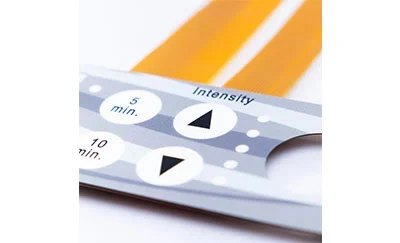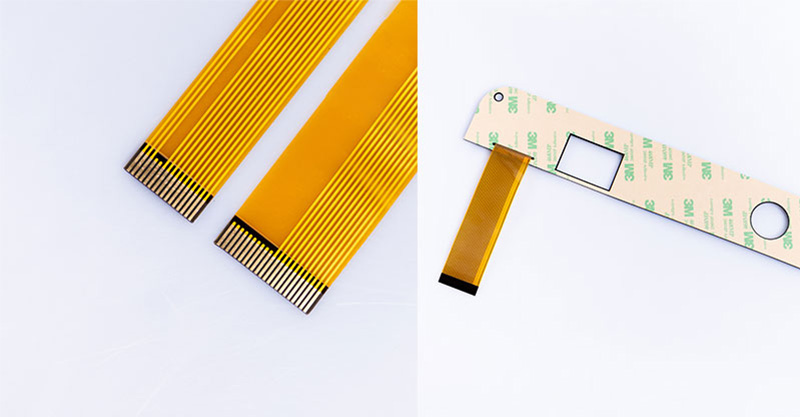
In the ever-evolving landscape of technology, user interface components play a pivotal role in enhancing user experiences. One such innovation that has gained significant traction is the Flexible Printed Circuit (FPC) Membrane Switch. This article delves into the world of FPC membrane switches, shedding light on their working, applications, advantages, and how they are changing the way we interact with electronic devices.

FPC membrane switch, short for Flexible Printed Circuit membrane switches, are thin, flexible electronic components designed to provide an interface between a user and an electronic device. They consist of multiple layers, including a flexible printed circuit, graphic overlay, adhesive spacer, and a rigid or flexible support layer.
At their core, FPC membrane switches utilize a simple yet effective mechanism. When a user applies pressure to a specific area of the switch, it deforms the flexible printed circuit, creating an electrical connection between two conductive layers. This connection is registered by the device's control system, translating the user's input into a desired action, such as turning a device on or off, adjusting settings, or entering data.
FPC membrane switches find extensive use in consumer electronics. They are commonly employed in devices like remote controls, microwave ovens, washing machines, and home automation systems. Their sleek design and ease of use make them a preferred choice for manufacturers aiming to enhance the user interface of their products.
In the medical field, FPC membrane switches are utilized in various equipment, such as patient monitoring devices, diagnostic tools, and medical instrument panels. Their reliability and resistance to environmental factors make them ideal for critical healthcare applications.
Industrial settings demand robust and durable user interfaces. FPC membrane switches are well-suited for industrial control panels, where they endure harsh conditions and heavy usage. They are resistant to moisture, chemicals, and extreme temperatures, ensuring consistent performance in demanding environments.
FPC membrane switches are built to last. They can withstand millions of actuations, making them highly reliable for long-term use. This durability reduces maintenance costs and enhances the overall lifespan of electronic devices.
Manufacturers can easily customize FPC membrane switches to meet specific design requirements. Whether it's incorporating backlighting, tactile feedback, or a unique graphic overlay, these switches offer versatility in design.
Compared to other interface technologies, FPC membrane switches are cost-effective to manufacture. Their efficient production processes and materials make them an economical choice for manufacturers.
As technology continues to advance, the demand for more intuitive and user-friendly interfaces grows. FPC membrane switches are at the forefront of this evolution, offering a blend of functionality, durability, and customization that is hard to match. With their ability to adapt to various industries and applications, FPC membrane switches are shaping the future of user interfaces.
In conclusion, FPC membrane switches have emerged as a game-changing technology in the realm of user interfaces. Their versatility, durability, and cost-effectiveness make them a preferred choice for a wide range of applications. As we look ahead, it's safe to say that FPC membrane switches will continue to play a pivotal role in enhancing the way we interact with electronic devices.
Are FPC membrane switches waterproof?
Yes, FPC membrane switches can be designed to be waterproof membrane switch, making them suitable for applications where exposure to moisture is a concern.
Can FPC membrane switches be used in outdoor environments?
Absolutely. FPC membrane switches are highly durable and can withstand outdoor conditions, including exposure to sunlight and temperature variations.
How long do FPC membrane switches typically last?
FPC membrane switches are known for their durability and can last for millions of actuations, depending on usage and environmental factors.
Can FPC membrane switches be backlit?
Yes, FPC membrane switches can incorporate backlighting, enhancing their visibility in low-light conditions. Click for backlight membrane switch
Are FPC membrane switches easy to clean?
Yes, FPC membrane switches are easy to clean and maintain, making them suitable for applications where hygiene is essential.